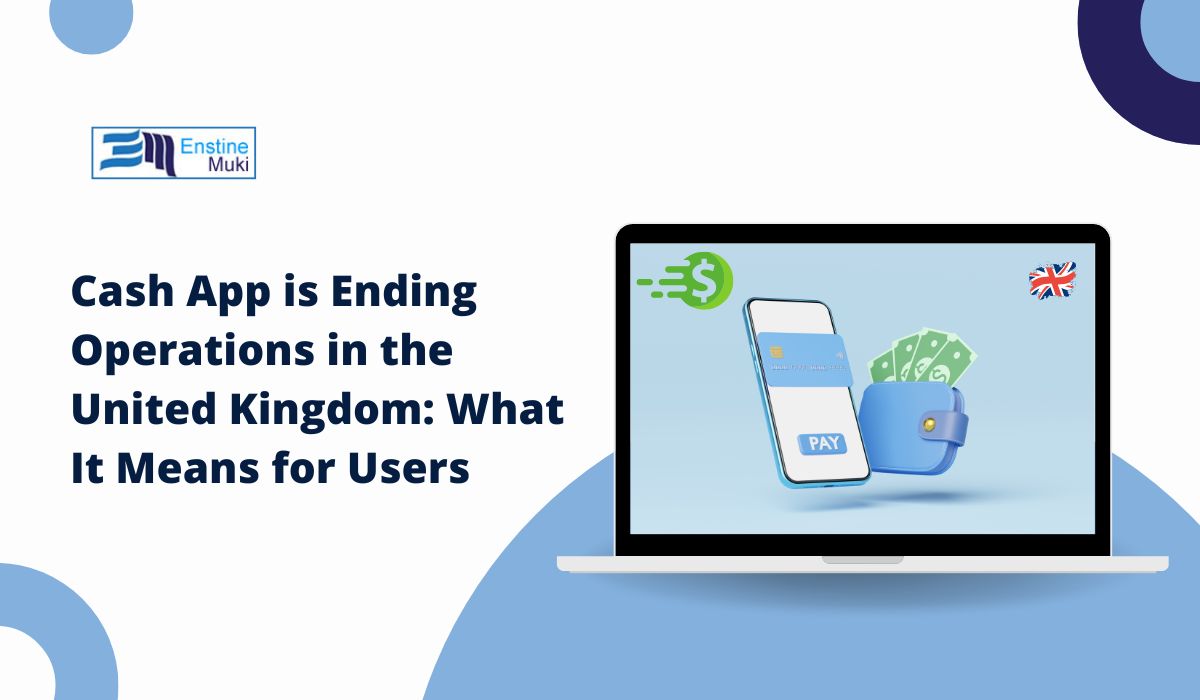Cash App officially shut down its operations in the United Kingdom on September 15, 2024, after six years of service, leaving many users searching for alternative ways to manage their digital payments. The announcement, which was made earlier in July, surprised many UK customers, who had come to rely on the mobile payments service for personal transactions, bill payments, and small business sales.
Why Did Cash App Leave the UK?
Back in July, Cash App’s parent company, Block, explained the reason for its exit from the UK market. In a statement posted on its website, the company said, “We do not make decisions like this lightly, as we know they impact our customers, our partners, and our team members who have helped us build to where we are today.”
The decision to shut down in the UK was part of a broader strategic shift. In a February 2024 shareholder letter, Block stated its new approach would focus solely on the United States. The company’s leadership decided to prioritize U.S. growth over expanding into international markets. This decision affected not only the UK but also any future global expansion plans for Cash App.
For UK users, this exit was unexpected and left many feeling frustrated, especially those who used Cash App as a primary means of sending money or managing payments. The decision disrupted their usual financial activities, from everyday payments to rent and bill transactions.
Why Did Cash App Leave the UK?
Back in July, Cash App’s parent company, Block, explained the reason for its exit from the UK market. In a statement posted on its website, the company said, “We do not make decisions like this lightly, as we know they impact our customers, our partners, and our team members who have helped us build to where we are today.”
The decision to shut down in the UK was part of a broader strategic shift. In a February 2024 shareholder letter, Block stated its new approach would focus solely on the United States. The company’s leadership decided to prioritize U.S. growth over expanding into international markets. This decision affected not only the UK but also any future global expansion plans for Cash App.
For UK users, this exit was unexpected and left many feeling frustrated, especially those who used Cash App as a primary means of sending money or managing payments. The decision disrupted their usual financial activities, from everyday payments to rent and bill transactions.
Impact on UK Users: What Happened?
When Cash App ceased its UK operations in September, users had to quickly adjust. Here’s what they experienced:
- Withdraw Funds: Cash App gave users until the shutdown date to withdraw any remaining funds. Those who failed to do so were at risk of losing access to their money after the closure.
- Pending Payments Processed: The company ensured that any pending payments would be completed before the service went offline, though no new transactions were allowed after the cutoff.
- Switching to Alternatives: With the sudden closure, users had to quickly transition to other digital payment platforms like PayPal, Revolut, or Monzo.
The key entities impacted by this decision include Cash App, Block, and UK customers who had relied on the service for personal and small business payments.
Why Did This Happen?
According to Block’s February 2024 shareholder letter, the company made a clear choice to deprioritize international growth in favor of focusing on expanding its U.S. customer base. This shift reflected a desire to grow through increasing the usage of the app among active users in the U.S. market, particularly by focusing on services for families and banking activities.
Block’s CEO had said in the letter, “We’re focused on growing within the U.S., not expanding into new markets, and we’re focused on driving growth through inflows per active more than active.” For the UK, this meant a total halt in Cash App’s availability, leaving users to find alternative solutions.
How the Shutdown Affected P2P Payments in the UK
The sudden exit of Cash App from the UK left a significant gap in the peer-to-peer (P2P) payments space. Research from PYMNTS Intelligence showed that before the shutdown, 52% of UK residents were using P2P payment services like Cash App, PayPal, and Venmo. These services were not only used for personal transactions but also for paying small retailers, utility bills, and even rent.
The exit of Cash App caused concern among users who depended on these quick and convenient transactions. Many users were forced to make the switch to alternative services, some of which carried fees or lacked the simplicity that Cash App provided.
Cash App Alternatives for UK Users
UK users have since transitioned to other digital payment platforms, and several strong alternatives have emerged as favorites:
- PayPal: A global leader in digital payments, PayPal has been a go-to option for those looking for a reliable service to replace Cash App.
- Revolut: Known for its user-friendly interface and wide range of financial services, Revolut has become a top choice, especially for those who need to handle international transactions.
- Monzo: A UK-based service, Monzo offers full banking features alongside peer-to-peer payments, making it a popular alternative for those affected by the Cash App shutdown.
The alternatives that gained popularity after Cash App’s departure include PayPal, Revolut, and Monzo, all of which provide similar or enhanced services.
The Future of Digital Payments in the UK
Despite Cash App’s exit, the digital payments landscape in the UK continues to thrive. Other fintech companies are stepping in to fill the gap, offering users even more options for managing their money digitally. Whether through P2P payments, mobile banking apps, or contactless payments, UK consumers still have plenty of choices.
Were you affected by Cash App’s shutdown? How have you adjusted your digital payment methods? Let us know in the comments below, and share this article with others who may still be looking for alternative payment platforms.
